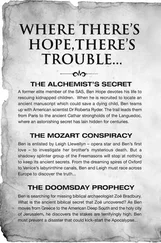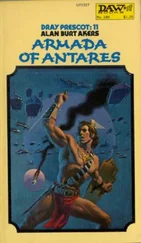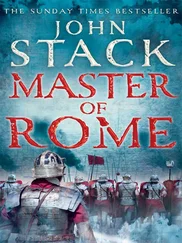Armada
JOHN STACK

For Richard John Moran
&
Frances Moran nee Varian
PROLOGUE
18th February 1587. Fotheringhay, England.
Dawn arrived slowly, the dull winter sunlight moving stealthily through the single window into the candle lit chamber, its soulless grey rays drawing all colour from the room. The lady knelt in prayer seemed almost like a statue, her pale skin and white veil stark against a black satin dress. The castle was finally quiet after hours of constant noise and the servants kneeling behind their sovereign listened intently to her murmured words of prayer, catching only snippets of the words spoken in a mix of languages.
Footsteps echoed from the hallway and the servants’ eyes darted towards the door. The lady remained motionless, a brief pause in her incantations the only outward sign that she was aware of the outside world. The knock reverberated through the still air.
‘It is time,’ a voice shouted through the door. ‘The lords are waiting.’
‘Let them wait,’ the lady replied, turning her head slightly, ‘I have not yet finished my prayers.’
Her tone was one of command, steadfast and firm, and the voice outside did not protest. The servants looked once more to their charge, drawing courage from her composure. They bowed their heads as she continued her prayers, stifling their tears in a bid to preserve the solemnity of these final moments.
Mary Stuart, Queen of Scots, rose and turned to her faithful retainers. They had been with her for many years, some throughout her nineteen years of captivity. She spoke to each in turn, handing them tokens of her affection, keepsakes and purses that contained all that was left of her meagre wealth, before motioning to her personal groom. It was time.
The groom took down the crucifix from the altar and, holding it aloft before him, escorted his Queen from the room and along the corridor towards the great hall of the castle. The servants followed. As they neared the entrance the Queen turned to them one last time to bid them farewell. Her emissary fell to his knees and wept but she drew him up and embraced him.
‘Tell my friends I died a true woman to my religion,’ she said and again her retinue took strength from her, her lady- in-waiting adjusting the folds of the Queen’s dress one last time on the threshold of the great hall.
The vast room was in silence, save for the spark and crack of a fire in the huge hearth, but the eyes of three hundred spectators were turned to the Queen as she made her entrance. Steps led up to the black-velvet-draped scaffold in the centre. They watched her in awe, her grace and calm preserving the significance of the moment. A slight smile played across her face as she fingered the small crucifix and prayer book in her hands.
She moved to the low stool before the block, her eyes darting to the felling axe lying on the floor. Her expression never changed and she listened in silence as the commission for her execution was read aloud. A Protestant dean stepped forward to pray for her and for the first time the depths of her concealed emotions were revealed.
‘I am settled in the ancient Catholic religion,’ she said firmly, her tone resolute, ‘and mind to spend my blood in defence of it.’
The dean ignored her and fell to his knees to pray out loud for her soul. She turned away and began to pray in Latin, their words intertwining, each voice calling to the same God across a divide that had almost destroyed a realm.
In the silence that followed, the Queen sat on the low stool to disrobe. Her lady-in-waiting stepped forward. With trembling hands the servant removed the two rosaries bound around the Queen’s waist before drawing down her black dress. Underneath Mary Stuart wore a dark red bodice and crimson petticoat, the colour of blood. The lady stepped in close, her tear stained lips kissing a white cloth blindfold before tying it in place.
The Queen knelt down and reached out in blindness for the block, her hands tracing over its edges. She leaned forward, adjusting the position of her chin with the tips of her fingers. The executioner bent over and touched her hand, an unspoken sign to withdraw them, and she stretched out her arms, lowering her head to fully expose the back of her neck. The executioner stepped back, the weight of the felling axe light in his calloused hands. He drew up the stroke.
‘Into thine hands, O Lord, I commend my spirit,’ the Queen cried aloud, ‘Into thine hands, O Lord, I commend …’
The blade fell, striking her on the back of the head.
‘Sweet Jesus,’ she whispered and the executioner quickly swung again, this time his axe striking her cleanly on the back of the neck, ending her fate.
The executioner picked up the severed head and held it aloft, turning slowly before the crowd so all could see and bear witness, his loud voice booming across the great hall:
‘God save the Queen.’
CHAPTER 1
25th March 1587. Near Plymouth, England.
Robert Varian picked his way across the ancient graveyard, his hands outstretched in the darkness as he wove through the maze of granite and sandstone markers. The noise of the air rushing through the trees filled his ears, and not for the first time, he felt a hollow point of unease at the base of his back. The local yeomanry were sure to be patrolling for deserters and given the lateness of the hour his presence so far from port would be hard to explain.
He looked up at the dark outline of the church spire to his left, tracing its outline with his eyes until he reached its apex. Above it the clouds were racing across the sky, a ghostly white, diffusing the light of the waning moon. He searched for a gap along their line of advance and, seeing one approach, quickly dropped his gaze. An instant later the moon’s light shone through a breech, illuminating the ancient stones. He could see it, not ten feet ahead. He was plunged once more into darkness as he stumbled on.
His outstretched hand touched cold sculpted stone and he felt his way slowly up over the curve of an angel’s wing, his hand falling to the shoulder of the life-sized statue which was draped over a plinth in lamentation. He followed the arm and paused as his hand reached the angel’s. This was his third visit since the full moon, and each one before had brought disappointment. He stretched his fingertips around the angel’s hand and smiled in relief as he felt the object loosely clutched within. It was a small wooden crucifix, roughly hewn as if created in haste and Robert glanced over his shoulder instinctively. He could see or hear nothing in the wind-driven darkness and he quickly replaced the crucifix in the angel’s hand.
He moved towards the church, his hand outstretched again until he touched the north wall. He turned east and left the bounds of the churchyard to go into the field beyond. His eyes were drawn to a dark mass of high ground ahead, a looming hillock behind which the clouds fled and then reappeared. It was a motte, a man-made earthen mound, and upon it some long-forgotten people had built a rudimentary stone fort, now in ruins. He began to clamber up its slope and the wind clawed at his travelling cloak. He paused as he reached the top. A tumbled down wall was before him and he stepped into its lee. The noise of the wind in his ears abated.
‘ Sumus omnes . We are all,’ he said in Latin to the darkness, a language he had been taught in his youth and one known by all educated men.
‘ In manu Dei . In God’s hand,’ came a reply and Robert smiled, recognizing the deep baritone of the voice.
Читать дальше
Конец ознакомительного отрывка
Купить книгу












